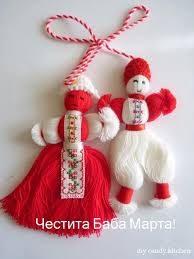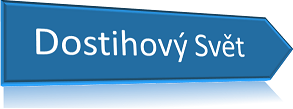March 2018 newsletter

Less than five weeks before the beginning of our racing season, it would be reasonable to assume that preparations are under way and excitement is building. However, February has been a really cold month here this year, as it has been over a large part of Europe. Very cold, but cloudless for the last three weeks, so we have been spared snow and ice here in Prague. As the days have gradually got longer, the cold has grown gradually stronger. On the last day of February, the daily maximum temperature here in Prague, in the warmest part of the country, is -6°C, with a particularly chilly wind. It is hard to imagine that we will start racing, on grass, on April 2nd, at Lysá nad Labem.
As a consequence, horseracing has continued to be rather far away from my thoughts. Soon enough, probably, there will be signs of spring, and afternoons at the racecourse will seem to be a viable, pleasant and real prospect.
Only a small number of Czech-trained horses are entered for races abroad early in March – I note that no Váňa-trained horses are entered for races in the next ten days, and I hope that means that there will be a rare, well-earned brief period of respite for at least a part of the Váňa team.
I have not noted many interesting articles in the Czech-language horseracing websites to translate for you recently. There have been the usual pre-season interviews with trainers. It is possible that some of the trainers have said interesting things about their prospects for the coming season, or about the state of the training profession. However, I doubt it. Almost all of them have presumably expressed a certain amount of cautious hope about their horses’ upcoming performances, together with concern about finding staff and good riders for their horses. I will be happy if all of them are lucky and live the dream this season. In reality, however, horseracing is a cruel sport, with just one winner in each race, and numerous losers.
Our best senior jockeys are nowadays in considerable demand abroad, as has been discussed repeatedly in these newsletters and on these web pages over the months and years. These guys have kept busy during the winter, and really do have justification for hoping to continue to do well in 2018. Tomáš Lukášek has ridden some good winners and has gone a long way towards establishing himself as a top jockey in Qatar. He has rides, admittedly on outsiders, in two races with million dollar prizemoney early in March. Filip Minařík has been established for a long time as a top jockey in Germany, and he is currently spending some time in Japan and gaining plenty of respect as a jockey there. Václav Janáček rode for a short time in Qatar, and is now, I understand, back in Spain. Bauyrzhan Murzabayev has been building his reputation mainly here and in Germany, but is working on joining the international elite. The international horseracng elite! Only racing in poor old Brexit UK stands aside from the worldwide trend in all major sports to send out scouts to recruit the best available talent from all corners of the earth. As far as almost all British owners and trainers are concerned, the local pool of talent still seems to be enough to satisfy their modest demands.
The exodus of our most talented jockeys, and also of our work riders and stable staff, leaves plenty of opportunities for good riders to come and gain experience in Czech horseracing, both on the flat and over fences. Of course, incomers have to be ready to work for little money, and they would be best advised to learn some Czech language - and Czech has a well-earned reputation for being both hard to learn and of very limited use outside a quite small but beautiful part of central Europe. Czech jockeys and riders may complain that incomers would take opportunities away from them, but I do not think that serious riding talent, combined with hard work and a professional approach, goes unrecognized for long here.
On the contrary, the emergence of a major new young local talent always makes a buzz. David Liška has always highly been rated by trainer Václav Luka, jnr., but until August 20th last year, he had ridden just one winner in 46 rides in 2017. See my translation of Jana Šejnohová’s interview with David Liška, which was made last May http://www.dostihovy-svet.cz/cs/node/7268. Then the floodgates opened, and he rode 19 more winners before the end of the year, including Nagano Gold, which won the Czech St Leger very easily under his guidance. When our season ended, he began to make an impression in France, winning well on Nagano Gold at Deauville at the end of November.
Václav Luka has given him the opportunity to have eight rides in France. I will now translate what the trainer said recently in an interview with Petr Guth, editor of the Dostihový svět web pages.
“David Liška is a boy who certainly deserves this opportunity, and when possible I’ll be happy put him up on our horses. He’s one of the small number of youngsters who works on himself. He analyzes his rides, and he tries to learn from his mistakes. Of course, he does make some mistakes, but he tries to work on them, and that is a very valuable thing. Of course, he’s also been noticed in France. They’re on the look-out for talented riders,” Luka admits.
When asked if such a talent can be kept at Czech racecourses in the long term, Luka made a somewhat skeptical response. “If he can keep his weight down, and if he carries on working on himself as he has done so far, it’s not going to be easy to keep him here after he finishes his apprenticeship. [17-year-old David Liška is in the second year of the three-year programme at the School for Apprentices at Prague Velká Chuchle racecourse.] It’s to be expected that there’ll be interest in him from abroad. I try to provide decent conditions for our people, and I think he appreciates that, and takes it into consideration. However, it’ll depend a lot on the situation in Czech horseracing.”
At the beginning of the new season, David Liška will still be receiving an apprentice’s allowance of 3.5 kg in lower category races, and he rode at 52 kg last year, so he is not going to be short of rides. I hope he will continue to develop and learn, and that he will not forget all about us when he becomes a star.
Finally, on March 1st, greetings to all Bulgarian readers: Честита баба Марта! Нека на един истински български празник си пожелаем много здраве, щастие и късмет, и да се обичаме!
I wish everyone who has read this newsletter right through to the end здраве, щастие и късмет – health, happiness and good luck.
